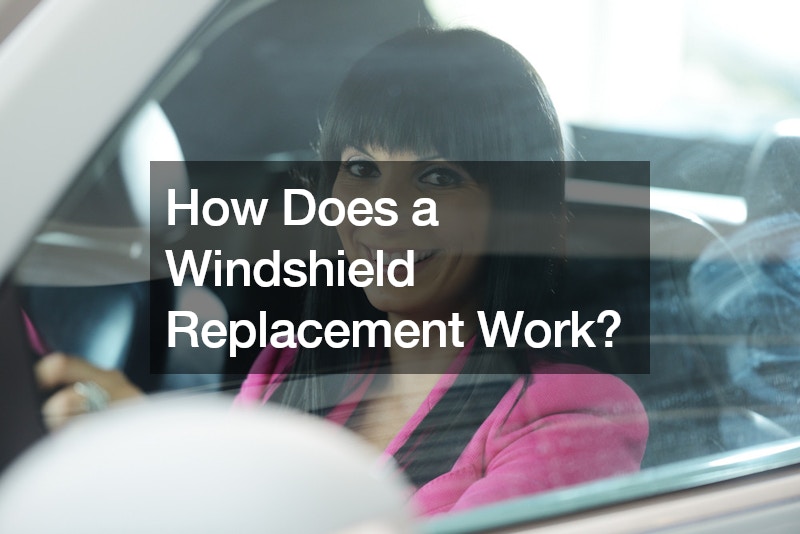

Our vehicles take us from point A to point B, allow us to experience amazing adventures, or even become a temporary shelter when we’re away from home. Whether your car is newer, older, if you’re the second or third owner, or whether you plan on driving the vehicle to the end of its mechanical life, it’s important to be aware of the common repairs for used cars. If you’re buying the vehicle from a dealership or an independent seller, you’ll want to have the car inspected and have them disclose any needed repairs before the final sale. Here are some common repairs for used cars you’ll need to budget for over the car’s lifetime.
Tire Rotation

Common repairs for used cars mean rotating the car tires regularly. Rotating tires regularly is a common precaution for new cars as well, but it’s even more important to do this with used cars since they often have higher mileage. Uneven tire rotation can cause excessive and uneven tire wear, and that can lead to expensive repairs.
If left unchecked long enough, uneven tire rotation can allow undue pressure to remain on one part of the tire versus another. While driving, especially at sustained higher freeway speeds over long periods, this uneven pressure can cause instability and even contribute to a motor vehicle accident. If a tire is thinner in one part of the tread versus the rest of the tire, this could often mean that there is an issue with the alignment of a suspension or steering system, in addition to the tires potentially being unsafe. Regular tire rotation is typically done every 5,000 miles for most vehicles.
Windshield Repairs
Windshields suffer from a variety of ailments, including cracks, chips, and scratches. For a damaged windshield that will not pass inspection in many states, the car’s owner must replace it or could be found guilty of breaking the law. With changing weather conditions, the windshield glass can crack fully from one side of the windshield to the other side in any of the four directions. Severe cracking causes unsafe driving conditions. It won’t take much but the right type of pressure in the right spots to potentially cause the glass to break and harm the vehicle’s occupants. Getting a windshield repaired or even replaced with a windshield replacement service is one of the most common repairs for used cars.
You may not need to get your windshield replaced if there are only minor cracks. Usually, the smaller cracks like hair slivers, small chips, and tiny spider cracks won’t necessarily cause your windshield to be replaced right away. But it is still wise to get them fixed as soon as you can. The cracks will continue to grow and create safety hazards for the driver and other vehicle occupants that may not be safe. Suppose a windshield replacement service finds hair slivers. In that situation, they will need to clean out the crack before permanently filling it with resin or another material that your auto insurance has approved. However, if the windshield has a lot of damage and is no longer safe to drive with, then you should contact a local glass repair shop in your area for repairs or replacement as soon as possible.
Interior Repairs

Auto seat upholstery repairs are caused by everyday wear and tear and can also result from a spill or pet accident. Quick and common repairs for used cars include purchasing new seat covers for the car for the front and back seats. Seat covers will cover any stains that can’t be repaired and holes that may have been caused by previous pet mishaps or accidental cigarette burns.
Other interior repairs that common repairs for used cars entail include removing previously embedded smells. Entrenched smells can be removed by using a carpet cleaner to remove any leftover dirt and grime, followed by an air freshener. Previously embedded smells may also need to be removed from the auto seat upholstery using specially made industrial strength odor removers. These odor removers are often used by car detailing shops and can sometimes be purchased at auto repair stores.
Auto Accident Repairs
Older vehicles don’t come with many modern-day safety systems and computer checks that modern vehicles do. Lack of modern safety features means the potential for increased accidents if a driver is not fully used to driving an older vehicle. Lack of power steering or power brakes could also be a hazard. In these cases, because those vehicles are not as responsive to steering and braking, it could mean more driving errors in an emergency.
Dealing with auto accident repairs can include minor things like working with a collision repair shop to fix dents and scratches from shopping carts or more serious collision repair like replacing panels or windows. An auto repair shop can walk you through body-specific common repairs for used cars.
Muffler Replacement

When dealing with common repairs for used cars, a budget for a new muffler can be helpful in the event the current one wears through or falls off. Muffler replacement is caused by regular wear and tear due to corrosive elements eating away at the metal over time. Your car should never be blowing any color of smoke other than opaque or white. If you notice that your car is blowing black smoke, it could be time for a new muffle. The cost of a muffler replacement will vary based on a few factors:
- Auto repair shop you use
- Make, model, and year of your car
- Whether the new muffler is factory-issued, universal, or custom made
Many states have specific laws surrounding what types of mufflers vehicles can be outfitted with and the level of noise they’re allowed to make.
Trailer Upkeep
If your older vehicle happens to be a truck, let’s not forget about regular trailer repair and trailer upkeep as part of the common repairs for used cars. A faulty or dangerous trailer can make for a whole lot of frustration and an unsafe driving experience. Trailers are the attachments to the truck that the truck pulls. Trailers haul materials and goods when they otherwise would not fit in the vehicle.
Some trailer owners make the mistake of attempting to haul more weight than the trailer is meant to carry. Carrying additional weight places more strain on the trailer, the truck’s engine, and the attachment parts that keep the trailer in place. The more strain on these parts than is allowed, the increased chances of bolts breaking and other issues. If you’re purchasing the truck-trailer combo from someone you’re not familiar with or are unfamiliar with the truck’s hauling history, assume the parts have been overly stressed.
The most common types of trailer repairs are mostly related to the bed, tarp tie-down areas, or load-bearing capacity, which can be repaired with basic knowledge in welding. If you don’t have any welding experience, it is not recommended you attempt to repair load-bearing issues of the trailer.
Trailer upkeep includes regular greasing of the suspension, checking tire pressure, and ensuring all items are in working order. Additional trailer components needing attention include all lights and automatic stabilizing components. If any light bulb goes out or there’s some other issue with a light not turning on when it should, that could indicate something going wrong internally with wiring or an electrical problem. Faulty lights and wiring can signal other drivers of moves you have no intention of making. It’s vital to keep trailer upkeep included as one of the common repairs for used cars.
Changing Your Locks

If you’re getting the car from another owner who doesn’t have the keys, purchasing the vehicle from an auction, or you’ve been locked out, you may find yourself in a position where you need to change the locks on the car. As part of the common repairs for used cars, changing the locks will most likely need to be done at least once over the vehicle’s lifetime.
Locks for used cars are replaced by a locksmith who specializes in auto-related locks. If a key is still stuck in the vehicle, the locksmith company will need to cut any stuck keys. Drilling may be required. Once the old lock and key are removed from the car, the locksmith will reattach a new key.
Keep Supplies on Hand
Dealing with common repairs for used cars means keeping certain supplies on hand. In addition to a 72-hour emergency supply kit, for older cars, you should keep on hand a bottle of engine oil, a tire pressure gauge, a set of sockets and wrenches, and spare fuses. It’s best to get a batch of fuses that have multiple sizes and amp, as you’re not sure which one you’ll always need.
Two different sizes of flashlights along with fresh batteries will give you enough light if you make repairs in the dark. Keep an umbrella in the trunk along with some work gloves. It’s helpful to keep these items in a container dedicated just for the auto supplies.
One of the most important yet often forgotten supply items to keep on hand for common repairs for used cars is the manual for the vehicle’s make, model, and year. A common problem with used cars is that the previous owner might have installed an aftermarket part without paying attention to potential repair hurdles it might cause later. A manual will help you find the mistake, sometimes provide a workaround, and give you tips on preventing the same mistakes in the future.
Know What Your Insurance Covers

No matter how old or used the car is, car insurance is required by law in all fifty states if you or a loved one are driving it on the roadways. Often, a car insurance company will give you a basic policy that covers your state minimum requirements. Basic coverage usually only covers just the state-mandated liability requirements and will pay for repairs or medical expenses caused by an auto accident for people other than yourself.
Comprehensive car insurance provides more coverage than just liability. If you’re thinking about purchasing a used car, typically, comprehensive car insurance is what you’ll want to pay to protect your investment if it’s stolen or vandalized. Comprehensive coverage may also cover fire or flood damage and cover repairs due to natural disasters such as hail storms or lightning strikes.
Keep in mind that not all comprehensive car insurance will provide the same levels of coverage if the used car is older. The same disasters are most likely covered, but not for the same amounts. For custom car enthusiasts, this means checking the car insurance policy for those parts to see if the full cost of those parts will be replaced at today’s value or for what a previously drawn-up policy says the parts are worth. Dealing with common repairs for used cars means maintaining enough insurance coverage that you know your investment is covered in the event of unforeseen circumstances.
Major System Component Repairs
Many common repairs for used cars include maintenance performed at regular intervals of completed mileage. Some of these include oil changes, cleaning or fixing the exhaust systems, and replacing air filters. Older used vehicles will benefit from fully synthetic oil changes or oil specifically designed to reduce burn or leakage. These types of oils can be more expensive.
Other system component repairs are major. Major systems of the vehicle commonly replaced as part of common repairs for used cars include the catalytic converter, the transmission, and sometimes even the entire engine. These are all common in older vehicles because they have reached a certain age or mileage where parts start to wear out more than others, and as such, require repair sooner rather than later. The most efficient way to avoid expensive repair services down the road, as well as plenty of other headaches, is by making sure that every part of your vehicle gets enough love and attention before it starts giving out.



